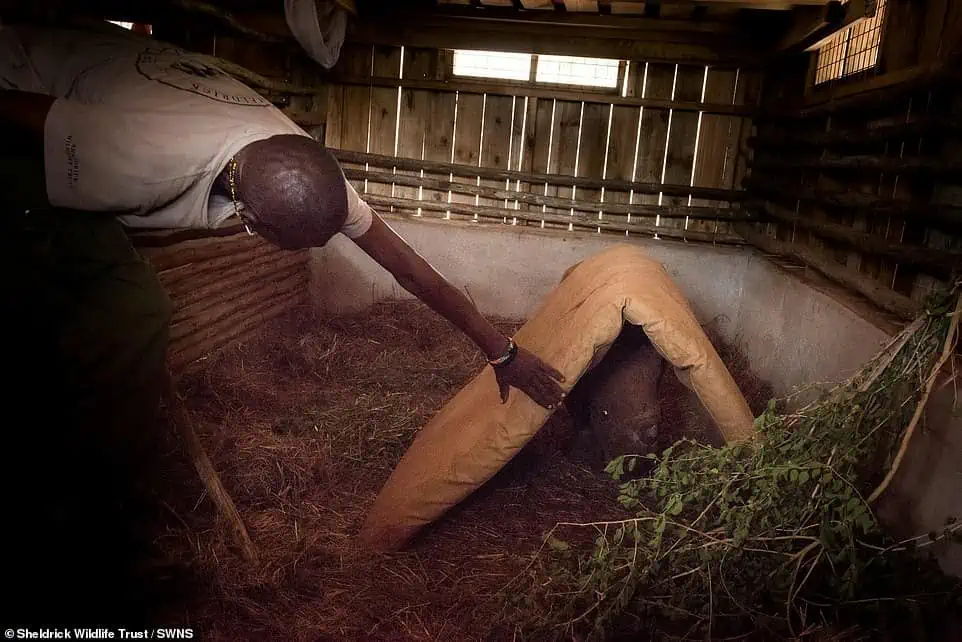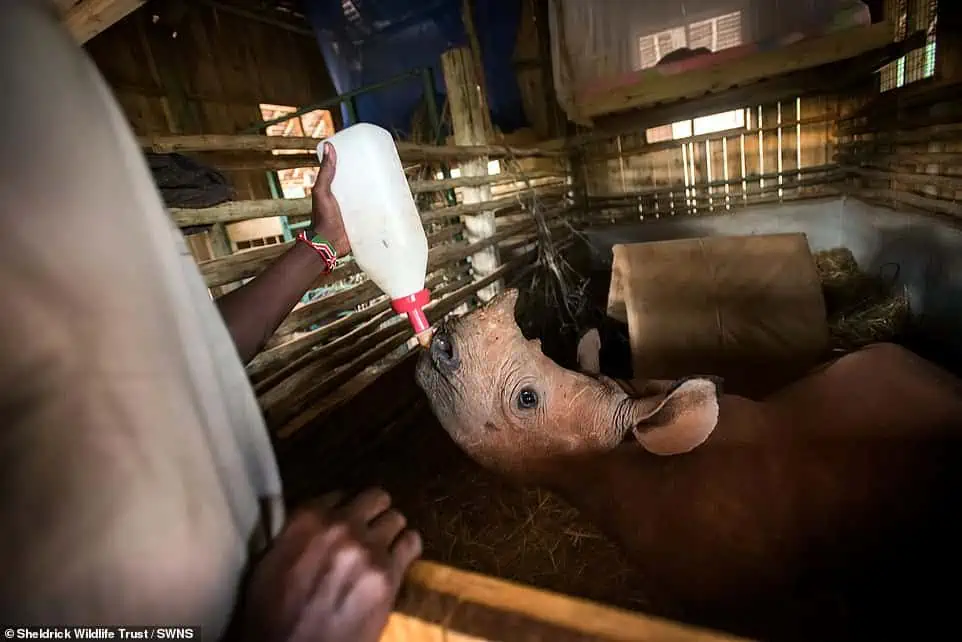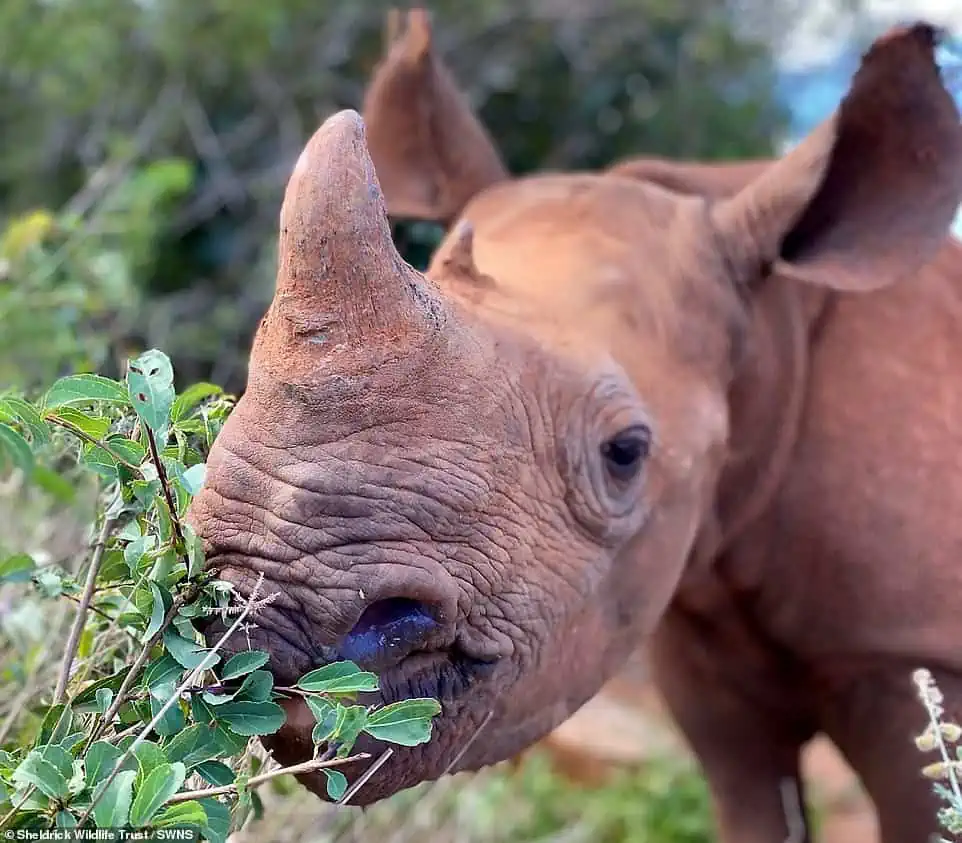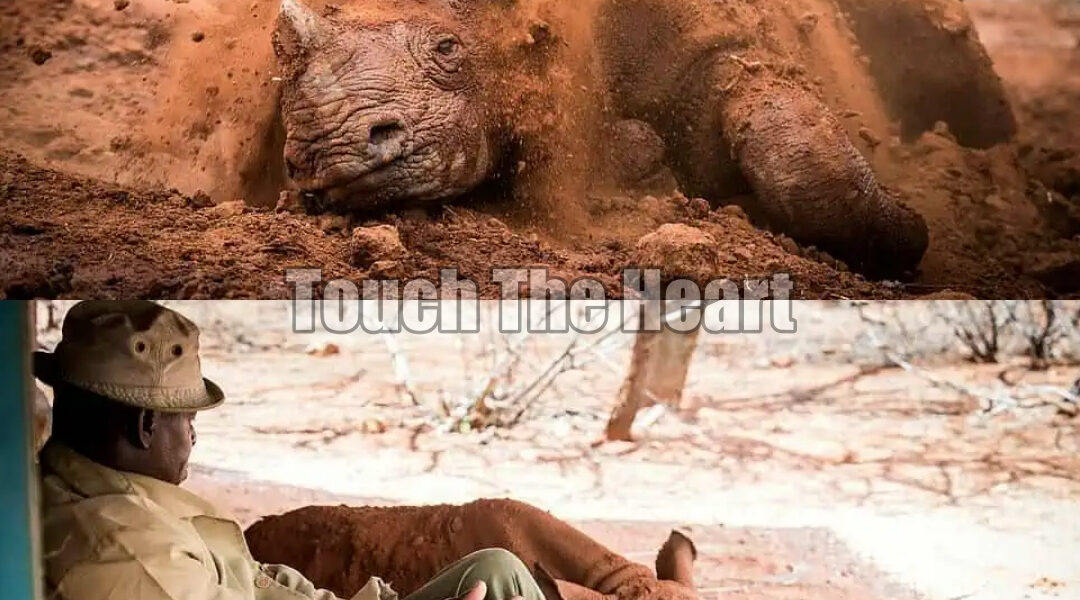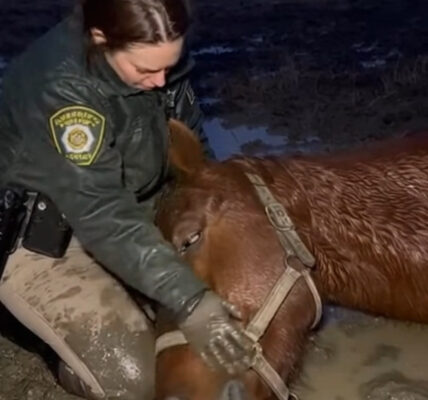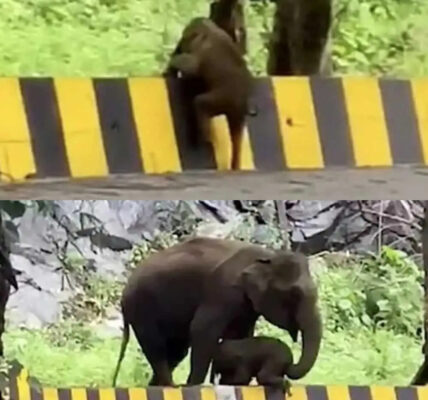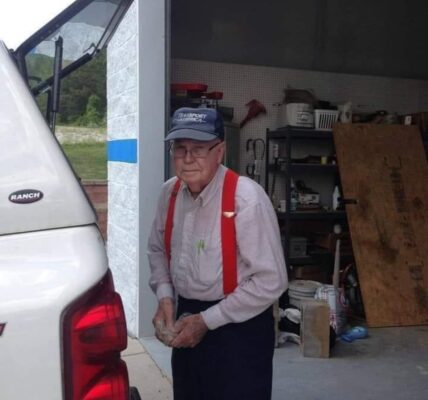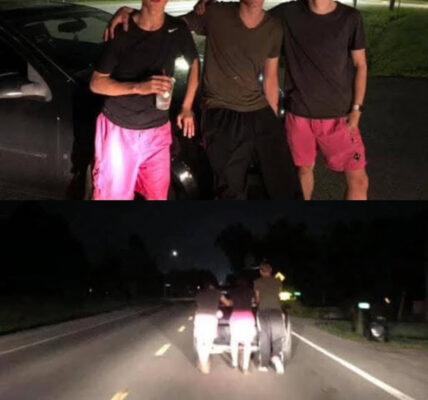In the vast wilderness of Tsavo West, Kenya, the sun rose over a quiet heartbreak. Rangers found the lifeless body of a mother rhino — her horn still intact, untouched by poachers. Nature, not violence, had taken her. She had died from anthrax, a natural but deadly infection. Beside her, trembling, hungry, and calling for help, stood her calf — barely six months old.

He was small, frightened, and completely alone.
They named him Apollo.
When the rangers of the Sheldrick Wildlife Trust reached him, he had pressed himself against his mother’s body, unwilling to leave. It took patience — soft voices, slow movements, and the promise of safety — to guide him away from the place of loss. That day, the wild gave up one of its most fragile souls, entrusting him to human hands.
Apollo’s story could have ended there — another orphan lost to the wild’s unforgiving law.
Instead, it became the beginning of something extraordinary.

A New Home, A New Hope
At the Trust’s Kaluku Field Headquarters, Apollo found his second family. His days now began at dawn, when the first light spilled over the red Kenyan earth. His keepers — men who had once rescued elephants, zebras, and other orphans — now cared for a creature who carried both weight and wonder in every step.
His mornings started with a bottle of milk, carefully warmed and handed to him by his keepers. He drank with eagerness, his tiny horn just beginning to form above his nose. They laughed softly when he nudged their arms for more, his trust already growing.
Apollo’s stable was custom-built: warm, secure, and safe from predators. But each morning, as the stable door opened, his excitement was impossible to contain. He would trot out, ears twitching, sniffing the air, ready to greet the world again.

The Little Rhino’s Routine
As the heat rose, Apollo had his favorite ritual — mud baths.
With the help of his keepers, he would roll joyfully in soft red earth, coating his skin in a thick, protective layer. It kept him cool, protected him from insects, and softened his sensitive hide. Sometimes, he’d splash so much that the rangers had to dodge flying mud, laughing as he grunted with contentment.
When he wasn’t rolling in the mud, Apollo loved his bush walks. Each day, two keepers accompanied him through the open lands. They called it his “bush school,” where he learned to recognize the scents and sounds of the wild he would one day return to. Along the way, he met elephants, dik-diks, and even hippos, who watched curiously as the baby rhino trotted past, brave and wide-eyed.

He still took naps — many of them. In the shade of acacia trees, he would curl up beside his keepers, his small body pressed against their legs. Sometimes he’d rest his head on one of their boots and drift off, his breaths slow and steady, trusting the world again.
Love in Every Detail
To the team at Sheldrick Wildlife Trust, Apollo was more than a rescue. He was a life reclaimed from tragedy. His keepers cared for him not as a project, but as a child. They fed him on schedule, rubbed his small horn affectionately, and spoke to him as if he could understand every word.
And perhaps, in some quiet way, he did.
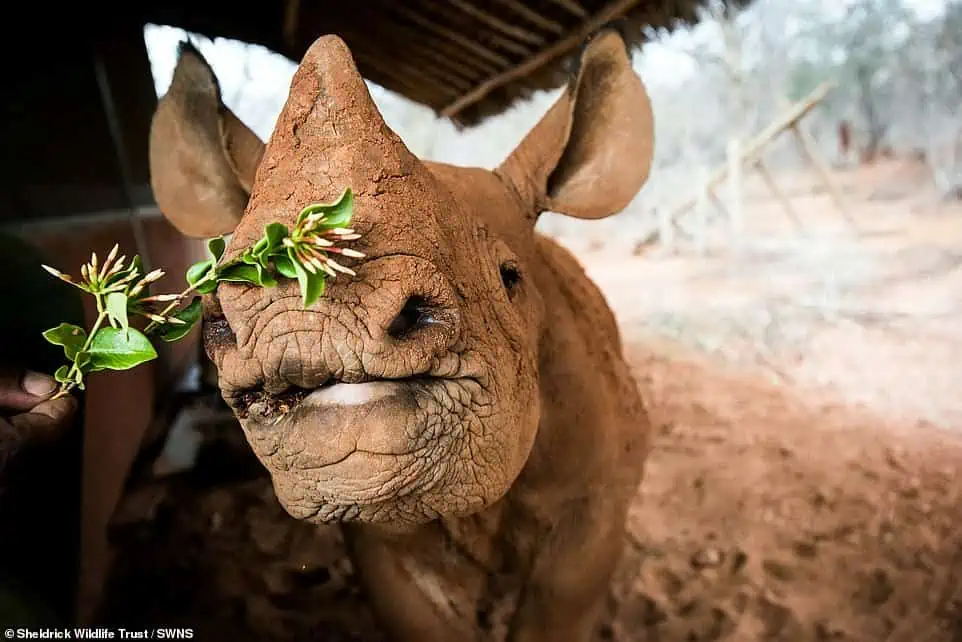
They knew he couldn’t have just one keeper. To prevent him from bonding too strongly to a single person, his caretakers rotated shifts — but they all loved him the same. When one left, another would arrive with the same bottle, the same gentle tone, and the same promise: “You’re safe.”
The Spirit of a Survivor
Rob Brandford, the Trust’s Executive Director, once said,
“Typical of black rhinos, Apollo enjoys routine, familiar faces, and known surroundings.”
It’s true — Apollo thrived in routine. Mornings began with milk, afternoons with exploration, evenings with quiet naps beside his favorite people. By sunset, he’d retreat to his stable, hoisting his little mattress over his head like a blanket before settling down for the night — a funny habit that made everyone smile. They called it his rhino fortress.
As he slept, the keepers stayed close. Some nights, they heard him make small noises — dreams, perhaps, of running beside his mother again, or of the rivers and trees he would one day call his own.
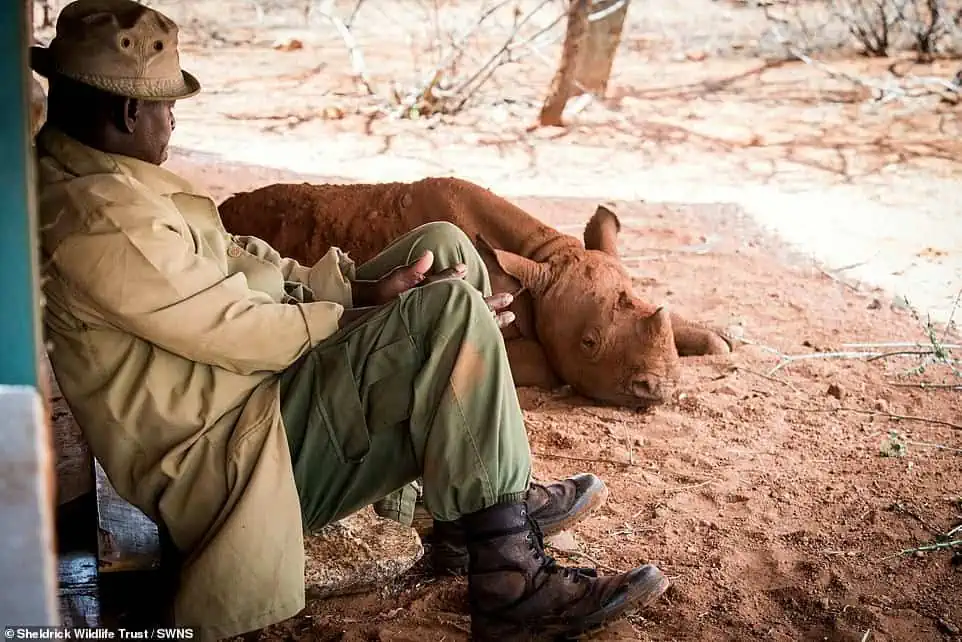
A Symbol of Hope
Every day, Apollo grew stronger. His appetite soared, his legs grew sturdier, his confidence bolder. The rangers often joked that keeping up with him during his morning sprints was now “a full-time workout.” He’d charge down the sandy riverbeds, tail flicking, as hippos and giraffes looked on.
And through it all, his keepers never left his side — because in the wild, a baby rhino never walks alone.
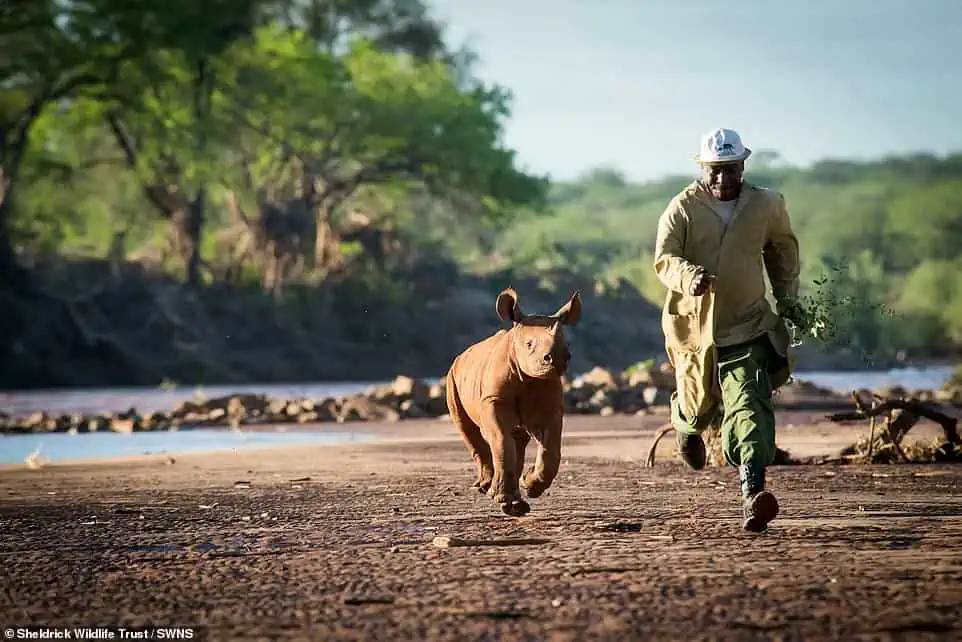
The Sheldrick Wildlife Trust had rescued 17 rhino orphans before him, but Apollo was special. He came at a time when black rhinos were vanishing fast — victims of poaching and the false belief that their horns had healing powers. Each horn, made of nothing more than keratin — the same substance as human fingernails — had cost countless rhinos their lives.
But Apollo’s story became a counterpoint to that cruelty. A reminder that while greed destroys, compassion rebuilds.

From Loss to Legacy
Today, Apollo is no longer the frightened calf found beside his mother’s body. He is playful, strong, and fiercely loved. His days are filled with laughter, learning, and the touch of kind hands. When he’s old enough, he’ll return to the wild — not alone, but equipped with everything his human family has taught him: trust, courage, and the instinct to survive.
And perhaps, one morning years from now, as dawn breaks over Tsavo, a grown rhino will stand on a hill and look toward the rising sun — and somewhere deep inside, he will remember the hands that once fed him, the voices that comforted him, and the love that made him whole again.
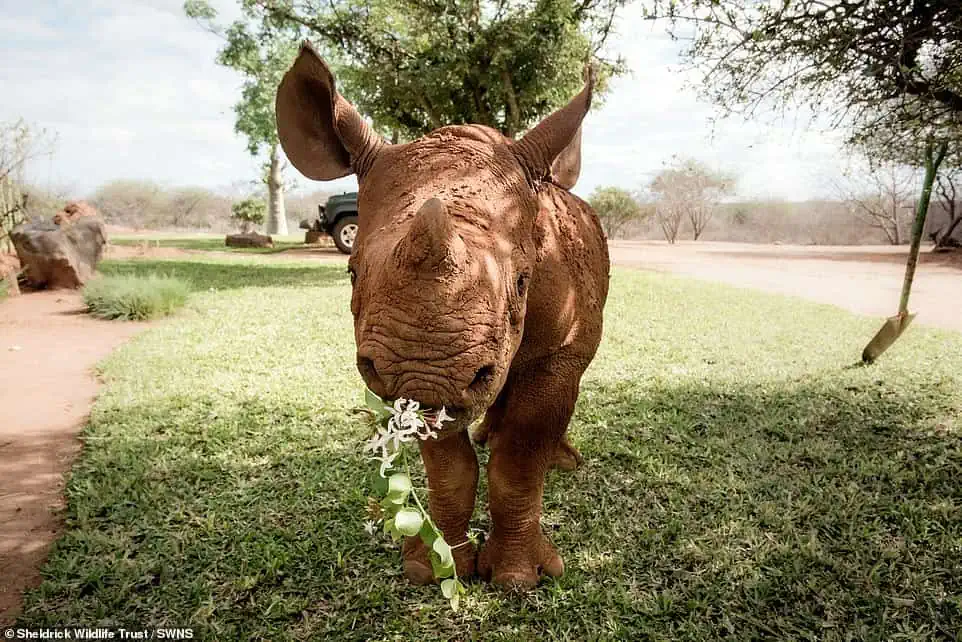
Because Apollo’s story isn’t just about saving one animal.
It’s about what humanity can be at its best — a bridge between survival and compassion, between what’s wild and what’s kind.
And for one little rhino orphan who lost everything, it’s proof that even in the harshest places on earth, love can grow — and save a life.
